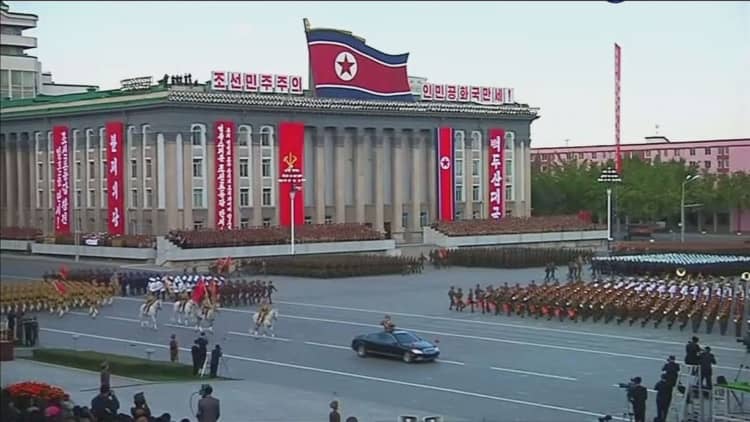
North Korea's apparent decision to downsize its annual winter military exercises is seen partly as a public relations "ploy" by the nuclear-armed dictatorship given the approaching Olympic Games in South Korea.
The Wall Street Journal reported Monday that North Korea's military forces "scaled back their annual winter military exercises this year," citing U.S. officials crediting pressure from ongoing sanctions. In previous years, the North Koreans have conducted artillery and submarine drills as part of the exercises.
"They've basically slowed down the speed and tenor of the exercises," Center for the National Interest defense analyst Harry Kazianis told CNBC. "I think that makes sense but I wouldn't give weight to the reports that it could be because of sanctions and limits to oil supplies and things like that."
If anything, Kazianis said, it's likely that Pyongyang is "trying to act on its best behavior for the Olympics" since the world is watching.
"You have to remember they haven't tested any missiles in a few months now," said Kazianis, the director of defense studies at the Washington-based think-tank founded by former President Richard Nixon. "All this is is a PR ploy by the North Koreans to make themselves look as good as possible."
The North Korean exercises typically start in December and go through March, but the Journal said Monday the drills this year "are less extensive than usual."
"One possibility is North Korea just doesn't have the resources at this time for that activity and have decided to save resources and put them toward another area," said Lisa Collins, a fellow with the Korea Chair at the Center for Strategic and International Studies, a Washington-based think tank.
Indeed, the volatile regime is seen as struggling despite its advances in nuclear and missile development over the past several years.
"North Korea has a lot of fundamental weaknesses and it's difficult for them to maintain military readiness in general," said Denny Roy, an Asia Pacific security expert and senior fellow at the East-West Center, a Honolulu-based think tank. "They've managed to do it over a lot of years but it's increasingly difficult now with sanctions than before."
Regardless, Roy called the North Korean move to scale back military drills "a positive development" because it raises hope that there could be a non-military resolution that would satisfy Washington on the country's nuclear issue.
South Korean officials have become worried in recent weeks about even a limited strike, or a so-called "preventive attack," which is reportedly being considered by the Trump administration against North Korea.
Even so, Kazianis said tensions will return on the Korean Peninsula after the Olympic Games given the upcoming annual joint U.S.-South Korean military exercises.
"The North Koreans are going to go crazy once again when that happens," Kazianis said.
Defense experts say the North Koreans view the annual joint military exercises, which were delayed until after the Olympics, as provocative because they contain simulated elements sometimes described as "decapitation strikes" by special operations forces that target the regime's leadership.


